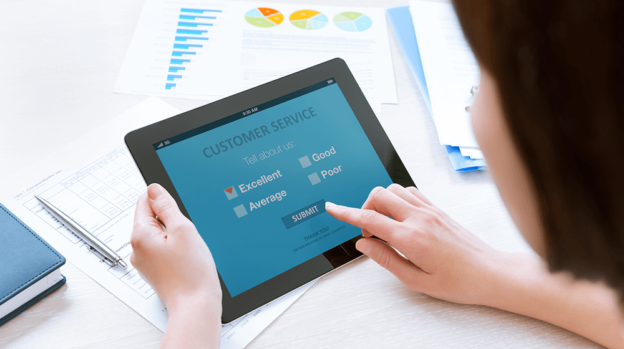Businesses have access to a treasure trove of valuable customer data, from how their audience is engaging with a social media post to their feedback on a product or service. When properly collected and analyzed, this data is invaluable for improving the customer experience — but you need to be collecting the right data.
Below, 12 members of Young Entrepreneur Council (YEC) share their insights by responding to the following question:
“What do you think is one piece of consumer data that’s most important for small businesses to collect, and why is it valuable for them?”
Here’s what they recommend you start collecting now.
1. Email Addresses“You need to be sending out monthly emails to all your clients and potential clients. You can send out education materials, announcements, sales, etc. But the first step is making sure you have the email address of all your clients and potential clients.” ~ Peter Boyd, PaperStreet Web Design
2. Individual Interests“Learning about a person’s interests is a critical type of data that can help you tailor your products and content to their needs. Google Analytics has a new category known as affinity categories. Your audience is automatically categorized as a “gamer,” “technophile” or some other persona based on Google’s analysis of their interests. Look for this feature and build your marketing around it.” ~ Blair Williams, MemberPress
3. Mobile Numbers“If you want to use SMS marketing to connect with your customers, mobile numbers are a must-have piece of consumer data. I suggest asking for this information after someone has already subscribed to your email list. You’ll find that these are the people who are most likely to subscribe for text notifications.” ~ Chris Christoff, MonsterInsights
4. How Consumers Found You“Whether you run an online business or a brick-and-mortar store, how your customers find you is a powerful piece of information to understand what marketing tools are working best. You may see a shift in revenue, but it can be hard to pinpoint what the funnel generates until you ask.” ~ Matthew Podolsky, Florida Law Advisers, P.A.
5. Customer Pain Points“Small businesses should collect data (both qualitative and quantitative) on consumer pain points. Surveys combined with documented discussions can help business owners understand their audience so they can market more effectively and anticipate the customer’s life span. Once business owners are more problem aware, they can create a more robust business development strategy to support sales.” ~ Libby Rothschild, Libby Rothschild
6. Customer Engagement Data“With customers being at the forefront of a company’s success, it’s important for businesses to collect customer engagement data to gain valuable client insights. It’s critical for companies to understand who their clients are by analyzing their engagement and behavior. If small businesses understand their customers’ wants, they will be able to design tailored products to meet their exact needs.” ~ Neel Kawale, Haüskey
7. Communication Preference“Collecting 1,000 emails is useless if all your recipients send you to spam. In an age where we have email, text messaging and various forms of social media, it’s important to know the best way to stay in contact with your customers. Some may even appreciate the ability to choose the way you contact them so they don’t feel like they’re getting lots of junk mail.” ~ Brian Greenberg, True Blue Life Insurance
8. Geolocation“One important piece of data that you need to collect from your customers is their geolocation. This is extremely relevant data for those who have a physical store. It offers a deeper demographic understanding and hyperlocal sensitivity and lets you target your customers more accurately with your marketing strategies. It’s a great way to boost your conversions.” ~ Josh Kohlbach, Wholesale Suite
9. Recency, Frequency and Monetary Value“If you want to improve how personalized your email marketing is, then consider doing an RFM analysis. This refers to recency, frequency and monetary value. When you look at how recently a person bought from you, how often a user buys and how large their purchases are, you’ll be able to create targeted emails. Your CRM and analytics tools work great for this kind of data.” ~ Syed Balkhi, WPBeginner
10. User Experience Data“It’s crucial to collect data about the user experience that visitors have on your site. If your site has a poor UX, it’ll drive them away and fail to bring you conversions. Pay attention to how they navigate your website, which browsers they use, what links they click, etc.” ~ Stephanie Wells, Formidable Forms
11. Product Feedback“Feedback from users can be invaluable. From feature updates to problems with our service, we use customer feedback. There have been bugs that were quickly identified thanks to the feedback from our users. We’ve also developed features based on the feedback from our users on what they would like to see. Making it easy for your customers to get in touch and voice their opinion is essential.” ~ Brian David Crane, Caller Smart Inc.
12. The Deciding Factor for Their Buying Decision“If they bought your product or service, what made them choose you over the competition? It could be a certain feature, price, convenience, personalized service or something else. Knowing this helps you understand what your customers consider to be priorities.” ~ Kalin Kassabov, ProTexting
Image: Depositphotos

Comments are closed